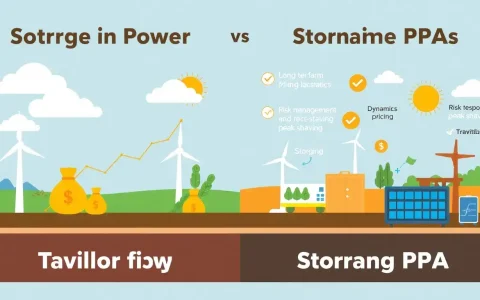
The increasing push towards electrification in transportation across the African continent is significantly influenced by the advancement and adoption of energy storage technologies. 1. Energy storage technologies facilitate the integration of renewable energy sources into transport systems, 2. They enhance the reliability of electric vehicle (EV) performance, 3. Effective energy storage solutions improve the economic viability of electrification efforts, 4. These technologies promote energy independence and sustainability in Africa. One salient point needing elaboration pertains to the integration of renewable energy sources. Energy storage allows for the effective harnessing of solar and wind energy, which are prevalent in various parts of Africa. By storing excess energy generated during peak times, this stored power can be utilized during periods of high demand or limited generation, thereby ensuring a stable and reliable supply for transportation infrastructure. Properly managed energy storage systems can provide critical support for the transition to electric transportation, enabling a greener, more scalable model for Africa’s mobility needs.
1. UNDERSTANDING ENERGY STORAGE TECHNOLOGIES
The field of energy storage is experiencing rapid progress, particularly in relation to transportation electrification. Various technologies, such as lithium-ion batteries, vanadium redox flow batteries, and even emerging solutions like solid-state batteries, are shaping the future of energy systems. The mechanisms by which these systems operate vary significantly but all aim to provide a reliable source of energy when needed.
Lithium-ion batteries are the most commonly used storage systems in electric vehicles and have become the dominant technology due to their high energy density, efficiency, and cost-effectiveness. However, the performance of these batteries can be influenced by temperature variations and environmental conditions. Additionally, the production of lithium-ion batteries raises concerns about resource availability and environmental impact, prompting a search for alternative technologies. Vanadium redox flow batteries, on the other hand, offer unique benefits for larger-scale energy storage, particularly due to their ability to decouple power and energy, making them suitable for grid applications as well as in transportation.
2. IMPACT ON RENEWABLE ENERGY INTEGRATION
Energy storage technologies play a pivotal role in integrating renewable energy into transportation systems, which is especially vital in Africa, where solar and wind resources are abundant. Transportation electrification heavily relies on renewables to provide a sustainable energy source, resulting in a lower carbon footprint and reduced dependency on fossil fuel imports.
The intermittent nature of renewable energy sources, however, poses a challenge. Energy storage addresses this issue by acting as a buffer, allowing excess energy to be stored during times of high generation and utilized during periods of low generation. This capability enhances the stability of the electric grid and ensures that electric vehicles maintain optimal operational efficiency regardless of external conditions. In developing infrastructure for electric transportation, addressing the challenges of energy intermittency is crucial. As investments are made in renewable generation, the demand for robust energy storage solutions will become increasingly important to complement EV charging networks across urban and rural landscapes.
3. ECONOMIC VIABILITY OF ELECTRIFICATION
The feasibility of electric transport systems is largely influenced by economic factors, and energy storage technologies play a pivotal role in enhancing economic viability. The initial investment in electric vehicle infrastructure may appear substantial, but the long-term savings and economic benefits outweigh the upfront costs.
By providing a reliable energy supply, energy storage systems can reduce operational costs associated with electric transportation. For instance, storing energy during off-peak periods when prices are lower and using it during peak demand can significantly lower energy expenditures. Moreover, advances in battery technologies are driving down costs, making electric vehicles more affordable for consumers and businesses alike. As the costs of energy storage decline, the overall economic landscape for electrification becomes more favorable. This results in greater accessibility to electric transportation options, fostering a wider acceptance among the populace.
4. PROMOTING SUSTAINABILITY AND ENERGY INDEPENDENCE
The increased adoption of energy storage technologies contributes significantly to sustainability goals in Africa. By facilitating the transition from fossil fuels to cleaner alternatives, energy storage serves as a cornerstone for environmental stewardship. The transportation sector is among the largest contributors to greenhouse gas emissions, and transitioning to electric power is essential for mitigating these impacts.
Additionally, energy storage encourages energy independence. Many African nations rely heavily on imported fossil fuels for their transportation needs. Developing local renewable energy resources, supported by storage solutions, enables countries to leverage indigenous energy sources for transportation, thereby reducing dependency on foreign oil markets. A localized energy system can bolster resilience against geopolitical tensions and price fluctuations associated with global oil markets. This strategic shift not only promotes national security but also leads to a more sustainable and clean energy future.
5. THE FUTURE OF ENERGY STORAGE IN AFRICA’S TRANSPORTATION
Looking ahead, the role of energy storage in Africa’s transportation electrification landscape appears promising. Continued investments in solar, wind, and energy storage technologies are expected to drive the transition towards electric vehicles and sustainable transportation networks.
Innovations in energy management systems and IoT integration will enhance the efficiency of energy storage applications, allowing for smart grid solutions that optimize energy distribution and usage. Advancements in solid-state battery technology also hold promise for improving energy density, safety, and lifespan, further enhancing the appeal of electric vehicles in both urban and rural contexts. As research and development efforts expand, a diverse array of energy storage solutions may emerge, tailored to meet the unique needs of Africa’s transportation landscape.
The collaboration between governments, private sector stakeholders, and international partners will be essential for creating supportive policies and infrastructure for electrification. In focus are sustainable financing mechanisms that can facilitate the implementation of energy storage systems while considering local conditions and capabilities. With a comprehensive and inclusive approach to energy storage, Africa can reshape its transportation future towards a more efficient and sustainable model.
FREQUENTLY ASKED QUESTIONS
WHAT ARE THE MAIN TYPES OF ENERGY STORAGE TECHNOLOGIES USED IN TRANSPORTATION?
Energy storage technologies are diverse, with several systems currently being utilized in transportation applications. The most prevalent technology is the lithium-ion battery, favored for its high efficiency, energy density, and declining costs, making it the go-to solution for electric vehicles worldwide. Other noteworthy technologies include vanadium redox flow batteries, which are particularly suitable for large-scale applications due to their capacity to decouple energy from power delivery.
Additionally, emerging solutions like solid-state batteries and hydrogen fuel cells are gaining traction. Solid-state batteries promise a safer and more efficient alternative to traditional batteries, while hydrogen fuel cells convert hydrogen into electricity, powering vehicles with water vapor as the only emission. As research and development progress, the landscape of energy storage technologies will continue to evolve, providing a range of options tailored to various transportation applications.
HOW DOES ENERGY STORAGE IMPACT THE RELIABILITY OF ELECTRIC VEHICLES?
Reliability is a key factor in the adoption of electric vehicles, and energy storage technologies play a vital role in enhancing this aspect. Modern energy storage systems ensure that electric vehicles have a steady and reliable energy supply, irrespective of external conditions. By storing energy from renewable sources, vehicles can draw upon that stored power, allowing for consistent performance and reducing the risk of energy shortages during peak demand periods.
Additionally, advancements in smart energy management systems enable real-time tracking and reporting of energy consumption and storage levels. Such systems create synergies between energy storage and electric vehicles, ensuring that vehicles operate at optimal levels while maintaining access to energy when it is most needed. This reliability is crucial for consumer confidence, making electric vehicles more appealing and practical for daily use.
WHAT ARE THE ECONOMIC BENEFITS OF IMPLEMENTING ENERGY STORAGE IN TRANSPORTATION?
Investing in energy storage technologies within the transportation sector offers numerous economic benefits. Initially, the transition to electric vehicles and the establishment of necessary infrastructure can require significant financial investment; however, the long-term savings often outweigh these costs. Energy storage allows operators to reduce energy expenses by utilizing stored energy during peak periods to minimize reliance on grid power, which is often more expensive.
Furthermore, by fostering local renewable energy generation and storage, countries can decrease their dependency on imported fuels, mitigate fluctuations in global energy prices, and enhance energy security. The growth of the electric vehicle market can also stimulate local economies through job creation in battery manufacturing, maintenance, and related services. Ultimately, energy storage contributes to a more economically sustainable transportation model, fostering economic growth alongside environmental benefits.
The transition to electric transportation in Africa is significantly influenced by the adoption of energy storage technologies, which lay the groundwork for future developments. Strategic investments into renewable energy sources coupled with efficient storage solutions promote an efficient transport ecosystem. Energy storage enhances the reliability of electric vehicles, allowing for fine-tuned energy management, which directly impacts the performance and efficiency of these vehicles. Additionally, energy storage systems improve cost-effectiveness, making electric transportation more accessible to a broader segment of the population. As the continent embraces these innovations, energy independence emerges as a significant advantage, reducing reliance on fossil fuel imports while enhancing environmental sustainability. Moreover, continuous advancements in energy storage technologies signal a bright future for electrification efforts, aligning with global trends towards decarbonization and sustainability. Collective action among various stakeholders, including governments and private enterprises, will pave the way for a transportation network that harnesses local resources, promotes economic resilience, and reduces ecological footprints.
Original article by NenPower, If reposted, please credit the source: https://nenpower.com/blog/the-role-of-energy-storage-in-africas-transportation-electrification/











